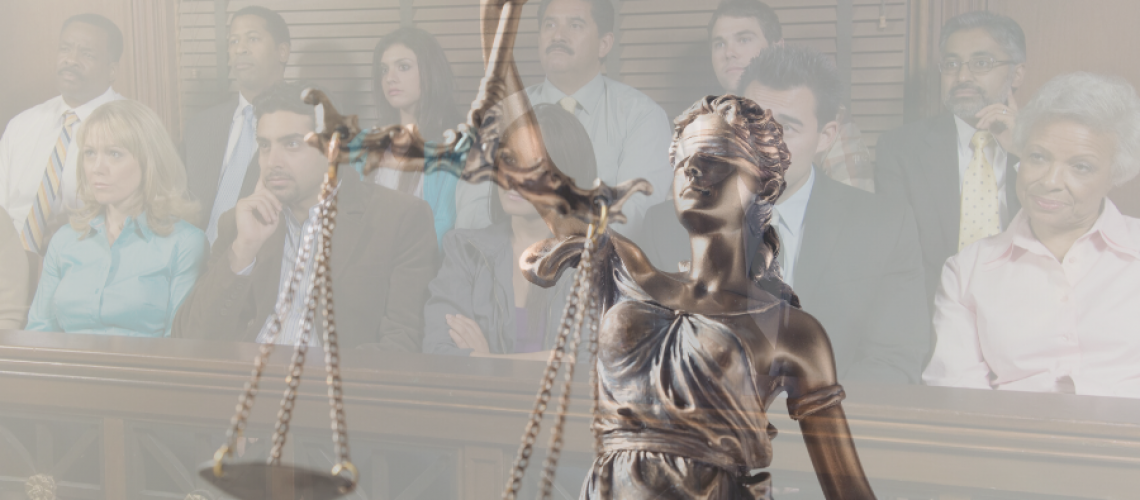How Does a Trial in the United States Work?
Every defendant in the United States has the right to a trial by jury. If the defendant does not want to plead guilty or accept a plea deal, he gets to have a trial. The following is an explanation of how trials work and a defendant’s rights during trial in the United States.
A trial is a formal court hearing that can last several days. The purpose of the trial is to determine whether a defendant is guilty or not-guilty of the charges. During the trial, there are four groups of people: The prosecution, the defense, the judge, and the jury. The prosecutors represent the government and try to prove the defendant is guilty. The defense represents the accused and tries to show that there is insufficient evidence to prove guilt. The judge acts like an umpire, making sure the parties do not break any rules during the case. Lastly, the jury: a group of citizens randomly selected from the community. They listen to the evidence and then make the ultimate decision in the case.
A Defendant’s Rights: Evidence
During a trial, a defendant has many important rights. Before the trial even begins, the defendant has the right to file pretrial motions, arguing that the court should not allow the government to present the evidence it intends to share with the jury.
At the start of the trial, the prosecution has the first opportunity to present its case. It brings in witnesses, one by one, and asks them to describe what they know about the case—that is, what they saw and heard during the investigation. Those witnesses may also bring in photographs, videos, and other evidence against the defendant. But, after the prosecutor talks to each witness in front of the jury, the defense attorneys have the opportunity to challenge those witnesses also. Through questioning, the defense attorneys try to show that the witness is forgetful, has misstated something important, or is lying.
After the prosecution has presented its case, the defense has an opportunity to do the same. A defendant has the right to force other people who may know something about the investigation or charges to testify as a witness in the case. In addition, the defendant has the right to testify himself. However, if the defendant testifies, the government has the same opportunity as the defense: to challenge the witness to show he is forgetful, has misstated something important, or is lying. In contrast, if the defendant decides not to testify, the prosecution cannot use this against him. For example, a prosecutor cannot say to the jury, “That man is guilty. If he were innocent, he would have explained himself to you.” That type of argument would violate a defendant’s absolute right to remain silent and would be a legal error.
A Defendant’s Rights: Burden of Proof
After receiving all of the evidence from the parties, the jury privately discusses whether the defendant is guilty or not. To find the defendant guilty, however, the jury must decide that the prosecution’s case was so strong that none of the jury members have a reasonable doubt as to whether the defendant is guilty. We call this the burden of proof and presumption of innocence, both of which are rights held by a defendant.
A Defendant’s Rights: Sentencing & Appeal
If the jury ultimately decides that the defendant is guilty of the charges, the judge sets a separate hearing, called a sentencing. At this sentencing, the judge determines an appropriate punishment for the defendant, based on the crime and the circumstances of the defendant.
Although a defendant’s rights during trial are numerous, after sentencing, a defendant has one remaining right: the right to appeal. In an appeal, the defense asks a higher court to review the trial. Because the judges in an appeal did not personally sit through the trial, however, they do not reweigh the evidence and decide that the jury got their decision wrong. Instead, the judges make sure that no one violated the legal rules governing trial. That is, they look for legal error, such as when a prosecutor uses a defendant’s silence against him.
This explanation of a defendant’s rights during trial is only a summary. Every case is different. It is important for a defendant to speak with his attorney to understand exactly how his own trial may work.


